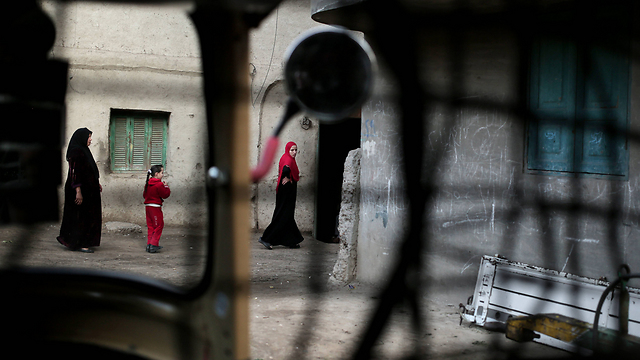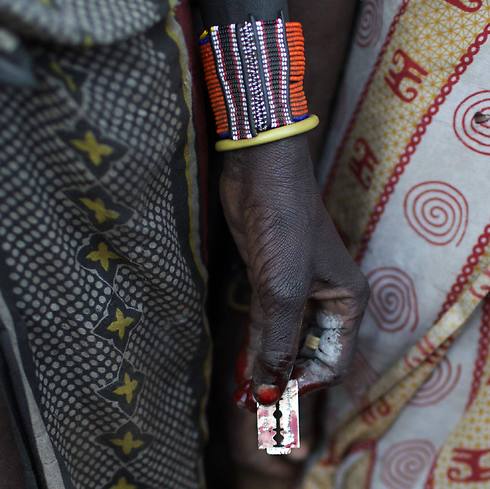The practice, considered by many in the country as preserving a girl’s purity, can lead to significant health complications and even death. A new bill that comes before the Egyptian parliament aims to set jail terms for those who perform it.
Women’s rights activists hailed the Egyptian government on Monday for advocating increased prison sentences for perpetrators of female genital mutilation (FGM) but warned that a new law could shroud the practice in greater secrecy.
Egypt’s cabinet on Sunday approved a bill, which must be passed by parliament to become law, imposing jail terms of up to seven years for people who perform FGM and up to three years for those who escort a girl or woman to undergo the practice.
It is currently punishable in Egypt by between three months and two years in prison under a 2008 law, which was enacted after an 11-year-old girl died following an FGM procedure.

The drive for tougher sentences follows the recent death of a 17-year-old girl of complications during an FGM operation in a private hospital in Suez province.
The Egyptian Initiative for Personal Rights (EIPR), a Cairo-based rights group, welcomed the bill but said it may not deter people from performing FGM and could drive it further underground.
“It will also decrease the rate of reporting FGM cases, as imposing a punishment on whoever escorts a girl to have the operation will make families fear reporting cases,” Dalia Abd El-Hameed of the EIPR said.
FGM affects an estimated 140 million girls and women across a swathe of Africa and parts of the Middle East and Asia and is seen as a gateway to marriage and a way of preserving a girl’s purity. It causes numerous health problems that can be fatal.
Widely Practiced
More than nine in 10 women and girls aged 15 to 49 have undergone FGM in Egypt, and some 80 percent of the procedures are carried out by medical professionals, according to the United Nations.
Yet the proportion of girls aged 15 to 17 in Egypt who have been cut dropped to about six in 10 as of 2014, down from three quarters in 2008, the UN Population Fund (UNFPA) said.

“We have seen some reduction in FGM in Egypt, but at the same time health professionals and others are still not being held to account for carrying it out,” said Suad Abu-Dayyeh of the London-based human rights group Equality Now.
In January 2015, Dr. Raslan Fadl was convicted of manslaughter in Egypt’s first FGM trial after a 13-year-old girl died in a botched procedure. While Fadl was sentenced to more than two years in prison, he has not yet served his jail term.
Rights groups say the current law has not been enforced and that society is permissive of FGM, which is widely practiced among Muslims as well as Christians in the mostly Muslim nation.
“Many people still link the idea of honor with female circumcision, so it is not about stiffening the law as much as addressing people’s mindsets,” said Reda al-Danbouki of the Egyptian group Women’s Centre for Guidance and Legal Awareness.
As reported by Ynetnews
